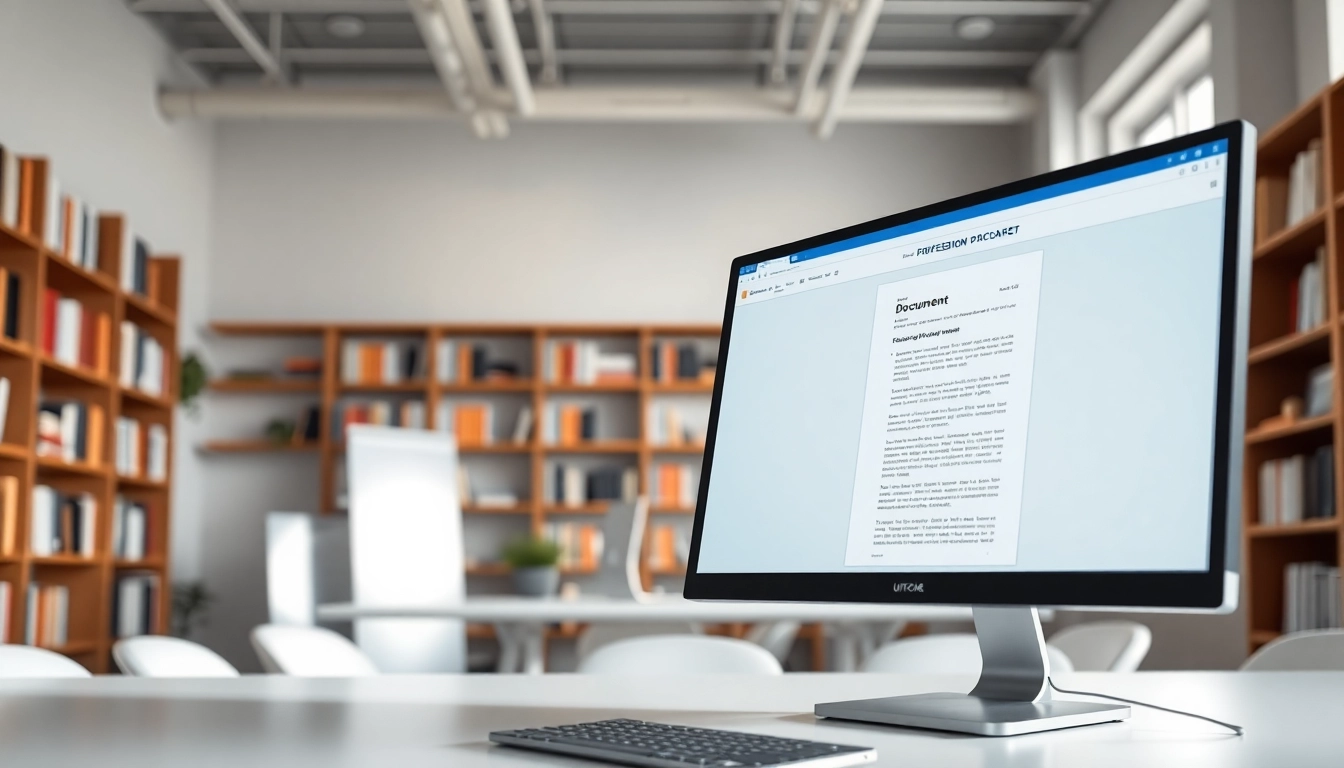Understanding the Fundamentals of Master French
Mastering a new language is no easy feat, and French is no exception. This Romance language, known for its rich history and cultural depth, can be both a challenge and a joy to learn. If you’re eager to Master French, understanding the foundations and intricacies of the language can set you on the path to success. In this guide, we will explore the importance of language foundations, the common challenges learners face, and the significance of setting realistic goals for your language acquisition journey.
The Importance of Language Foundations
At the heart of mastering any language lies a solid foundation. For French learners, this includes grasping essential vocabulary, pronouncing sounds accurately, and understanding grammatical structures. French, with its unique phonetics—like nasal vowels and the ‘r’ sound—requires focused practice. Additionally, mastering basic sentence structures enhances your ability to communicate effectively.
Consider starting with everyday vocabulary, such as greetings, numbers, and essential verbs. As you become comfortable, gradually introduce more complex grammatical elements like conjugations, gendered nouns, and sentence agreements. Learning a language is akin to constructing a building; the stronger the foundation, the more resilient the structure. Furthermore, consistent practice with basic elements will boost your confidence when facing more advanced topics.
Common Challenges in Learning French
Even with a strong foundation, learners often encounter several hurdles along the way. One major challenge is the distinction between formal and informal language. French has different forms of ‘you’: ‘tu’ and ‘vous’, each used in specific contexts. Misusing these forms can lead to unintended offense or misunderstandings.
Another common pitfall includes verb conjugation. French verbs are complex, especially when considering regroups and irregular verbs. While mastering tenses may seem daunting, breaking them down into manageable chunks and practicing them in context can greatly aid retention.
Furthermore, listening comprehension can be particularly challenging. Native speakers often speak rapidly, blending words into fluid phrases. To improve, immerse yourself in the language through listening exercises, songs, or podcasts tailored for French learners. Understanding these challenges allows learners to anticipate setbacks and develop strategies to overcome them.
Setting Realistic Goals for Language Acquisition
Establishing clear and achievable goals is crucial for anyone serious about mastering the French language. Effective goal setting aids motivation and provides direction. Start with short-term goals, such as learning ten new vocabulary words a week or being able to introduce yourself confidently. As you progress, you can scale into more ambitious long-term objectives, like holding a conversation with a native speaker or reading a French novel without a dictionary.
Moreover, it’s essential to maintain flexibility in your goals. Life can be unpredictable, and language learning can be irregular. Regularly reassess your progress and adjust your goals as needed to keep yourself on track without feeling overwhelmed. Remember, language acquisition is a journey, and every step, no matter how small, is a step forward.
Effective Resources for Aspiring French Masters
With a solid foundation in place, the next step is to explore effective resources that can enhance your learning experience. With the digital age at our fingertips, numerous books, online courses, mobile applications, and media resources are available to learners. Choosing the correct mix tailored to your learning style is key to effective study.
Top Books and Online Courses to Consider
Books remain an invaluable resource for language learners. From grammar books that break down complex rules to vocabulary workbooks filled with exercises, selecting the right literature can support your learning journey. Books like “Practice Makes Perfect: Complete French Grammar” offer in-depth explanations accompanied by practice exercises, which can reinforce your understanding.
In addition, online courses provide structured routes to language proficiency. Platforms like language learning websites and educational institutions often offer tailored courses structured by experience level—whether you’re a beginner or more advanced. Coupled with engaging video lessons, interactive quizzes, and community forums, online courses provide a robust framework for learning.
Apps and Tools for Everyday Practice
For on-the-go learning, applications offer a convenient way to incorporate French into your daily routine. Apps like language flashcard systems, vocabulary builders, and grammar practice tools allow learners to dedicate a few minutes a day to skill enhancement. Some popular choices include Anki for spaced repetition and Duolingo for gamified practice.
Moreover, many language apps allow for personalization based on your interests and proficiency level, making it easier to stay engaged. Try to incorporate these apps into your daily commute or break times to maximize your exposure to the language.
Utilizing Media to Enhance Understanding
Another effective way to master French is through various forms of media, such as films, music, and podcasts. Engaging with French media not only enhances listening skills but also exposes learners to cultural nuances and colloquial expressions not found in textbooks. Watching French films with subtitles can help bridge the gap between spoken and written language.
Listening to music by French artists can further immerse you in the rhythm of the language and improve pronunciation. Try to sing along or analyze the lyrics to deepen your understanding. Similarly, podcasts offer a wealth of material on various topics delivered at different levels of complexity, allowing you to tailor your listening practice. Combine these methods to create a rich, immersive experience that enhances your overall skill level.
Immersive Techniques to Master French
Immersion is perhaps the most compelling technique for mastering any language, including French. Immersive practices can involve engaging with native speakers, traveling to French-speaking regions, and deeply integrating the language into your daily life. Here, we’ll explore various immersive techniques that can supercharge your learning.
Engaging with Native Speakers
The most effective way to practice any language is to converse with native speakers. Engaging in conversations can significantly enhance your fluency and listening comprehension. Language exchange meetups, conversation clubs, and online platforms connecting learners with native speakers are excellent resources for facilitating this interaction.
As you converse, focus on not just the language but also cultural contexts. Understanding daily life, idiomatic expressions, and slang will enrich your understanding and appreciation of the language, making your practice even more enjoyable and insightful.
Cultural Immersion Through Travel and Cuisine
Traveling to a French-speaking country can elevate your learning experience. Being surrounded by the language forces daily use and comprehension in real-life situations. Engaging with locals, navigating menus, and asking for directions all serve as practical applications of what you’ve learned. Furthermore, immersing yourself in the local cuisine by trying to cook classic dishes using French recipes at home can deepen your connection with the culture.
Culinary immersion also feeds into language learning; cooking instructions in French can enhance vocabulary and comprehension. This multi-sensory engagement with the language allows for a holistic learning experience.
Practicing Listening and Speaking Skills Effectively
Listening and speaking skills require targeted practice to master. Regularly practicing with audio materials—whether through language-learning podcasts or listening to news broadcasts in French—can develop your ability to comprehend spoken French. Furthermore, repeating phrases and shadowing native speakers can help improve pronunciation and fluency.
Set aside specific times each week to focus solely on listening and speaking. Utilize language learning forums or apps that promote conversation practice with peers. Regular, targeted practice will markedly improve both reception and expression in the language.
Advanced Strategies for Continued Mastery
Once you have established your foundational skills and engaged in immersive practices, the focus must shift to advanced strategies aimed at deepening and sustaining your mastery of French. Continuous improvement requires adapting your methodologies to suit evolving needs.
Incorporating French into Daily Life
To truly master French, it helps to immerse yourself in the language daily. This doesn’t require a monumental time commitment; instead, small, consistent changes can yield significant results. Label objects around your home with their French names, maintain a daily journal in French, or commit to thinking in French during routine tasks.
Additionally, consider consuming your media in French, from social media feeds to YouTube videos. The key to incorporating French into daily life is making it a normal part of your activities, thereby reinforcing your language skills naturally.
Joining Communities and Groups of French Learners
Joining French-speaking communities or groups can offer continued motivation and support. Engaging with fellow learners can lead to meaningful conversations and collaborative practice. Look for local language exchange meetups, or consider joining online platforms where you can engage in forums, group discussions, and shared learning activities.
Communicating with others who share your goals often ignites motivation, enabling continued progress. Online platforms also host various events, quizzes, and challenges that can spur learning in a fun and competitive way.
Tracking Progress and Adjusting Methods
Maintaining a clear record of your progress is vital in any learning scenario. Consider setting measurable metrics for your growth, such as vocabulary size, listening comprehension, or fluency in speaking. Regularly revisit your goals and adjust your methods accordingly to stay aligned with your progress.
The inclusion of self-assessment tools—like practice exams or speaking challenges—can also help gauge your improvement. Reflectively analyzing your learning journey allows you to stay aware of what’s working and what needs adjustment, ensuring you maintain a trajectory toward fluency.
Measuring Your Success in Master French
Success in language acquisition is subjective, but setting benchmarks and milestones can help gauge your progress toward fluency. Celebrating achievements, both big and small, can provide motivation and validate your hard work.
Setting Benchmarks and Milestones
Establishing clear milestones can clarify your end goals. From passing language exams to conversing fluently with native speakers, milestones provide a sense of achievement. Break down larger goals into smaller, tangible tasks, such as completing chapters in textbooks or finishing specific courses.
Regularly assessing your skills at each milestone can help maintain motivation and establish a sense of accomplishment as you progress. Furthermore, sharing your successes with peers in learning groups fosters community support and encouragement.
Utilizing Feedback and Assessments
Constructive feedback is crucial for growth. Engage with peers or mentors for evaluations of your speaking and writing skills. This feedback loop alerts you to areas needing improvement and celebrates what you have mastered. Language exchange partners can also provide insights into your fluency and pronunciation.
Consider formal assessments as well, such as taking language proficiency tests designed to measure your skills effectively. This serves both as a benchmark and a significant motivator for your studies.
Celebrating Achievements in Language Learning
Recognizing and celebrating achievements is vital for maintaining motivation during your journey. When you reach a particular goal, reward yourself! This could range from a celebration meal, acquiring a new French book, or planning a trip to a French-speaking country.
Celebrating achievements contributes to a positive and rewarding learning experience, ensuring that your journey towards mastering French remains both fulfilling and enjoyable. Remember, learning a language is not merely about fluency; it’s about the journey, the culture, and the connections you build along the way.



